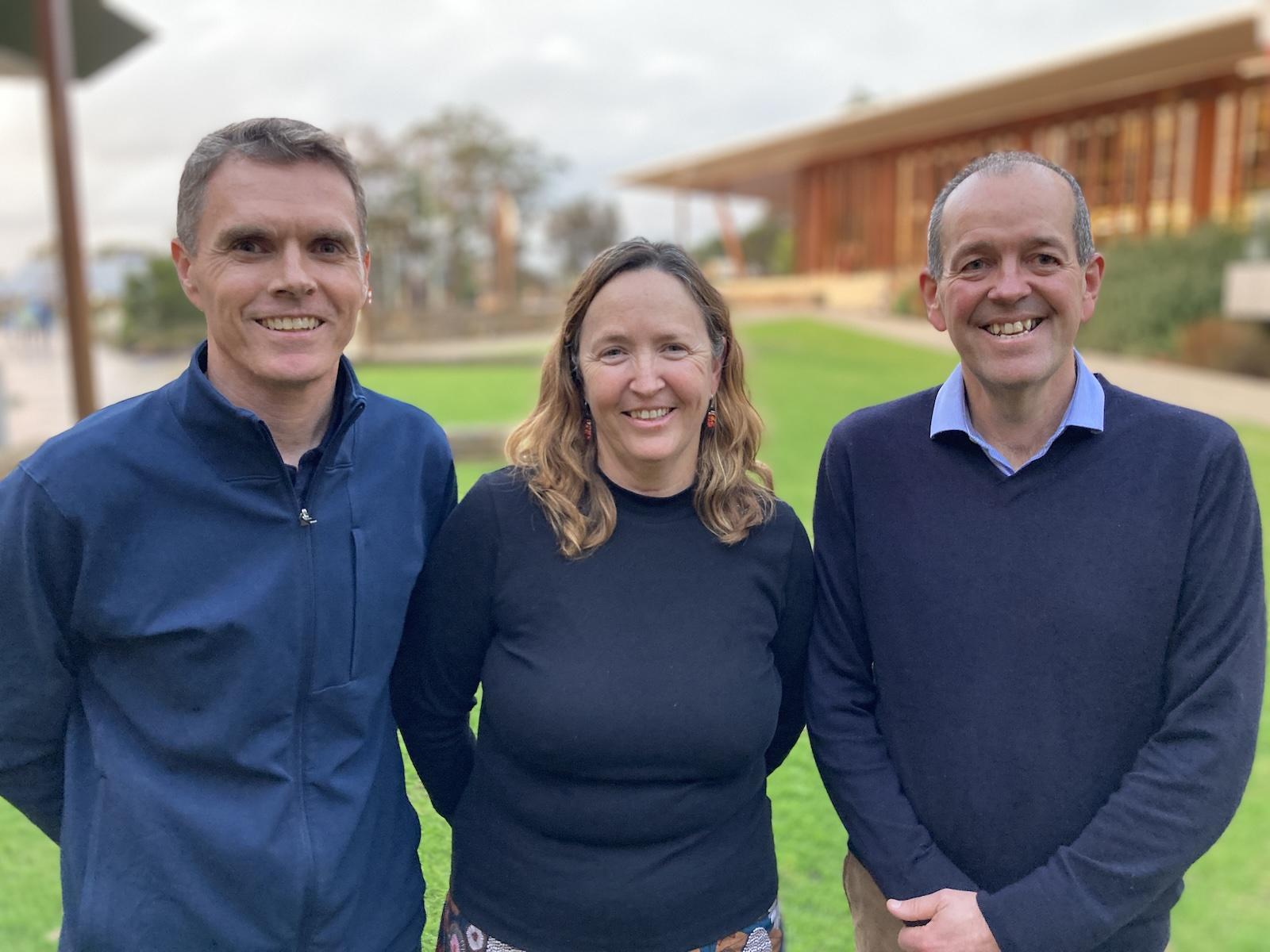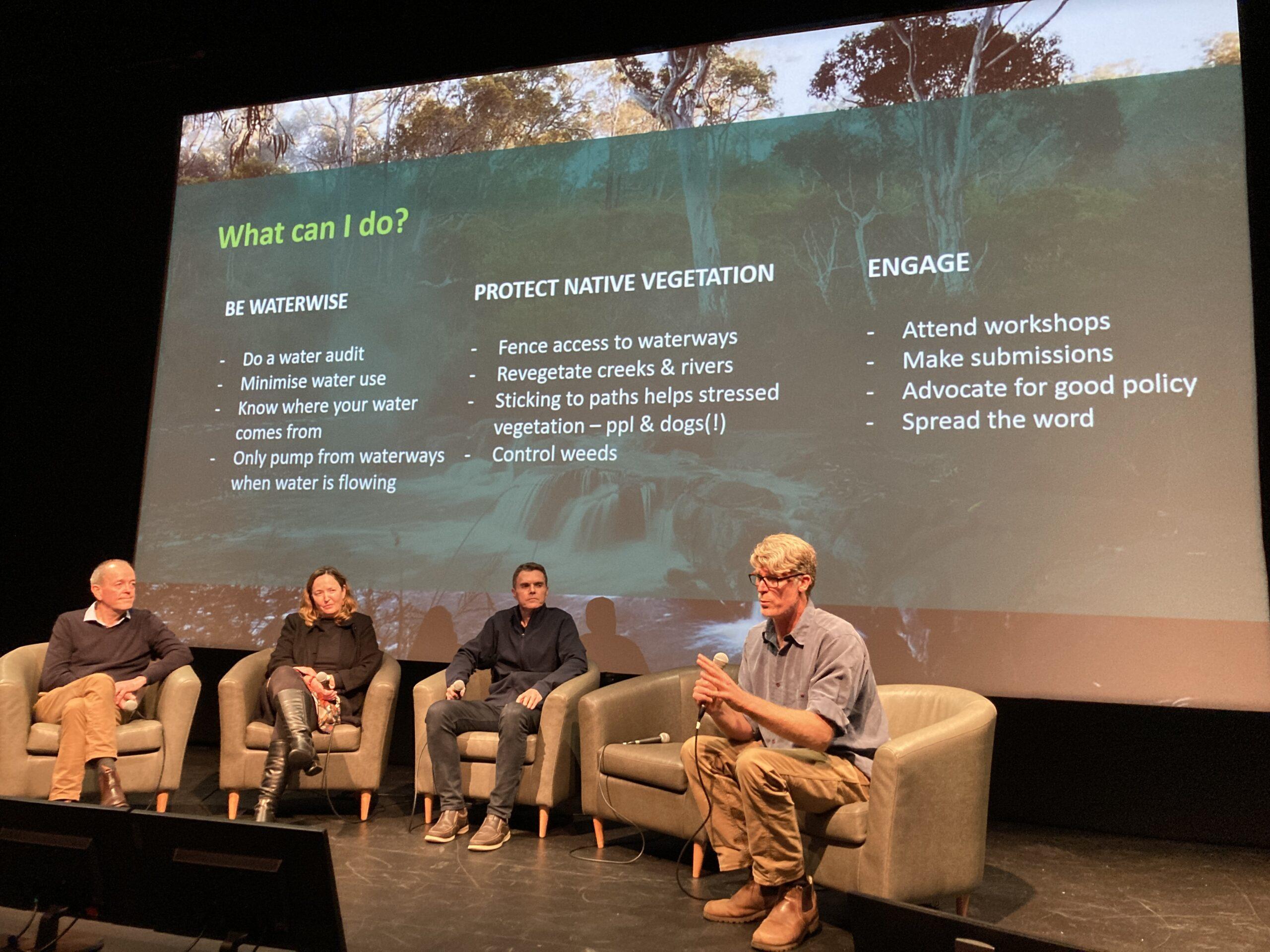26 August 2024
Hub leader, Professor Michael Douglas recently spoke about a drying climate at ‘Facing the Big Dry’, an Environmental Sundowner Series event run by Nature Conservation Margaret River Region.
The Donnelly River catchment is in south-western Western Australia.
It is a refuge for freshwater animals, including at least 5 threatened species of fish and shellfish.
One of the hub’s projects focuses on the Donnelly River catchment. Hub researchers are undertaking targeted research on the environmental and Indigenous water needs of rivers in south-western WA, resulting in improved water management that incorporates ecological and Indigenous values.
Hub leader, Michael Douglas recently spoke about this, and other hub projects, at an event in Margaret River.
Below is a copy of the Nature Conservation Margaret River Region’s article on the evening.
 Matthew Bowman (Water Corporation), Dr Kath Lynch (Department of Water and Environmental Regulation acting regional manager) and Professor Michael Douglas (leader of the Resilient Landscapes Hub) spoke about a drying climate, in Margaret River.
Matthew Bowman (Water Corporation), Dr Kath Lynch (Department of Water and Environmental Regulation acting regional manager) and Professor Michael Douglas (leader of the Resilient Landscapes Hub) spoke about a drying climate, in Margaret River.The Environmental Sundowner Series event – Facing the Big Dry – tackled the issue of climate change and how it’s affecting the region’s water future.
Speakers included UWA Professor Michael Douglas, leader of the National Environmental Science Program Resilient Landscapes Hub, Department of Water and Environmental Regulation (DWER) acting regional manager Kath Lynch and the Water Corporation’s Matthew Bowman, with an introduction and welcome to country from Undalup Association chair Zac Webb.
While winter rains are falling now, the region endured its driest and hottest 7-month period on record, with huge swathes of vegetation dying off and a heavy toll on wildlife.
Where parts of the Margaret River had once flowed year-round, this year it stopped flowing for nearly six months and flow was one third of the long-term average. Research also shows groundwater recharge is at its lowest in 800 years.
Nature Conservation general manager Drew McKenzie said there was no more “confronting and pressing issue” than water as climate change happens before our eyes. He also said it was time to overhaul to the Rights in Water and Irrigation Act written in 1914, which allows direct pumping from summer refuge pools in the Margaret River under a law that is “more than 100 years old – when we need to be thinking 50 or 100 years into the future”.
Mr McKenzie said every drop saved was a drop more for the environment, and each of us can make a difference by:

Nature Conservation general manager Drew McKenzie shares his suggestions on how the audience can make a difference.
Want to know more about the Resilient Landscapes Hub's activities and our research into practical solutions to environmental problems? Stay informed about activities, research, publications, events and more through the Hub newsletter.
"*" indicates required fields